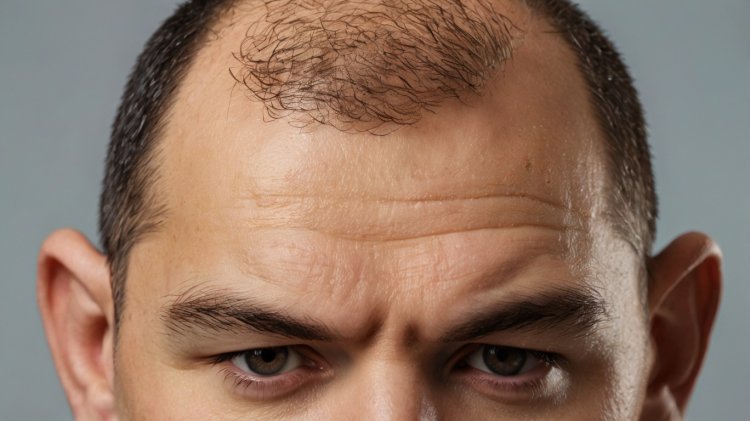why i am loosing my Hair
Discover the causes, symptoms, and preventive measures for hair loss. Learn how to manage hair loss and explore treatments to protect and restore your hair health.

Understanding Hair Loss: Causes, Symptoms, and Prevention
Introduction
Hair loss, or alopecia, can affect anyone and may involve the scalp or the entire body. It can be temporary or permanent and results from factors such as genetics, hormonal changes, medical conditions, or aging. While some people embrace hair loss, others seek ways to prevent or treat it. This article explores the causes, symptoms, and preventive measures for hair loss.
Symptoms of Hair Loss
Hair loss manifests differently depending on the cause. Common signs include:
1. Gradual Thinning on Top of the Head
-
The most common type of hair loss due to aging.
-
In men, it starts with a receding hairline.
-
Women often experience a broadening part or a receding hairline (frontal fibrosing alopecia).
2. Circular or Patchy Bald Spots
-
Affects the scalp, beard, or eyebrows.
-
Itching or pain may precede hair loss.
3. Sudden Hair Loosening
-
Caused by physical or emotional shocks.
-
Results in overall hair thinning but is often temporary.
4. Full-Body Hair Loss
-
Caused by medical treatments like chemotherapy.
-
Hair usually regrows after treatment ends.
5. Patches of Scaling on the Scalp
-
Indicates scalp infections like ringworm.
-
May include redness, swelling, and broken hair.
When to See a Doctor
-
Persistent hair loss or receding hairlines.
-
Sudden or patchy hair loss.
-
More hair loss than usual during brushing or washing.
Causes of Hair Loss
Hair loss occurs when new hair doesn’t replace the hair that has fallen out. Common causes include:
1. Genetics
-
The most prevalent cause is androgenic alopecia (male-pattern or female-pattern baldness).
-
Occurs gradually and in predictable patterns.
2. Hormonal Changes and Medical Conditions
-
Pregnancy, childbirth, menopause, and thyroid problems.
-
Autoimmune diseases like alopecia areata and scalp infections.
3. Medications and Supplements
-
Hair loss can be a side effect of treatments for cancer, arthritis, depression, heart issues, and high blood pressure.
4. Stress or Trauma
-
Physical or emotional shocks can trigger temporary hair thinning.
5. Hairstyles and Treatments
-
Excessive hairstyling, tight hairstyles, and harsh treatments like hot-oil applications can cause traction alopecia.
Risk Factors for Hair Loss
-
Family history of baldness.
-
Age and hormonal changes.
-
Medical conditions like diabetes and lupus.
-
Stress and significant weight loss.
-
Poor nutrition.
Preventive Measures
While genetic hair loss isn’t preventable, you can reduce the risk of other types of hair loss:
1. Be Gentle with Your Hair
-
Use detanglers and wide-toothed combs to avoid pulling.
-
Avoid harsh treatments like hot rollers and curling irons.
2. Protect Your Hair
-
Shield your hair from sunlight and ultraviolet light.
3. Avoid Smoking
-
Studies link smoking to baldness in men.
4. Monitor Medications
-
Consult your doctor about medications or supplements that may cause hair loss.
5. Consider Preventive Options During Chemotherapy
-
Cooling caps can help reduce hair loss during treatment.
Conclusion
Hair loss can impact self-esteem and quality of life, but understanding its causes and preventive measures can help you make informed decisions. Whether you choose to embrace it, cover it, or seek treatment, consult your doctor for personalized advice on managing hair loss.
FAQs
1. Can stress cause hair loss? Yes, emotional or physical stress can trigger temporary hair thinning.
2. Is hereditary hair loss preventable? No, genetic hair loss cannot be prevented, but treatments can slow its progression.
3. How can I reduce hair loss during chemotherapy? A cooling cap can minimize hair loss during chemotherapy treatments.
4. Are there effective treatments for hair loss? Treatments like medication, laser therapy, or hair transplants can address certain types of hair loss. Consult your doctor for the best approach.
5. Does hair loss due to hormonal changes grow back? Hair often regrows after addressing hormonal imbalances or completing treatments like pregnancy or menopause.










